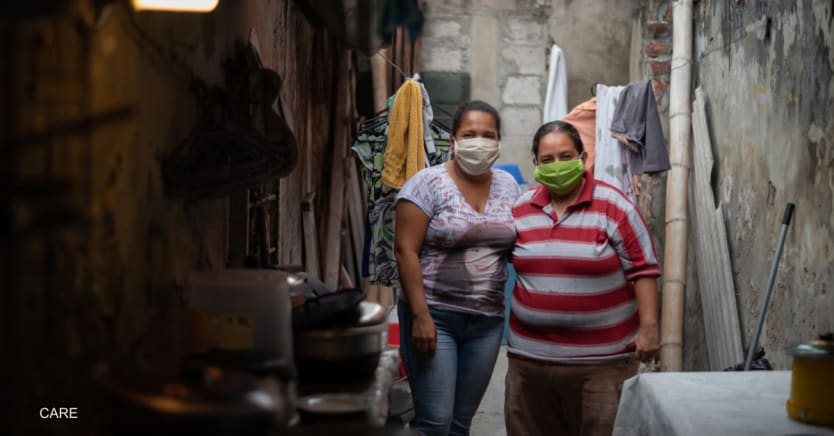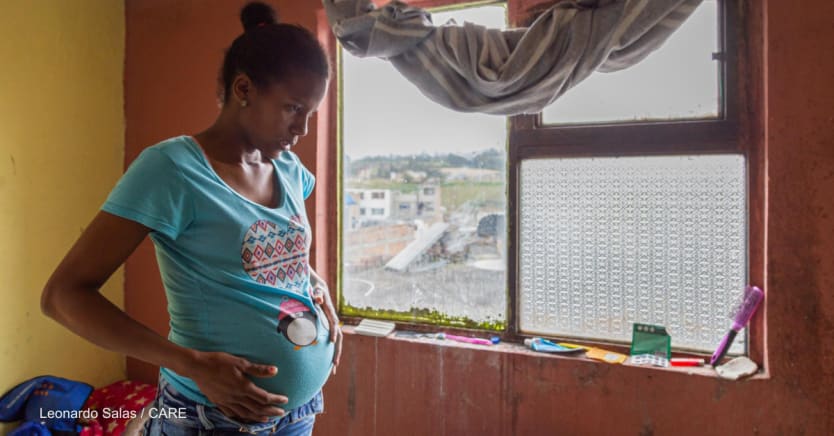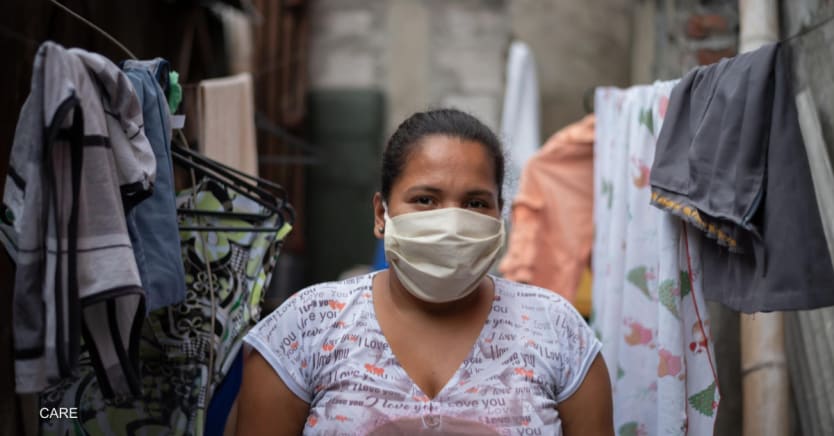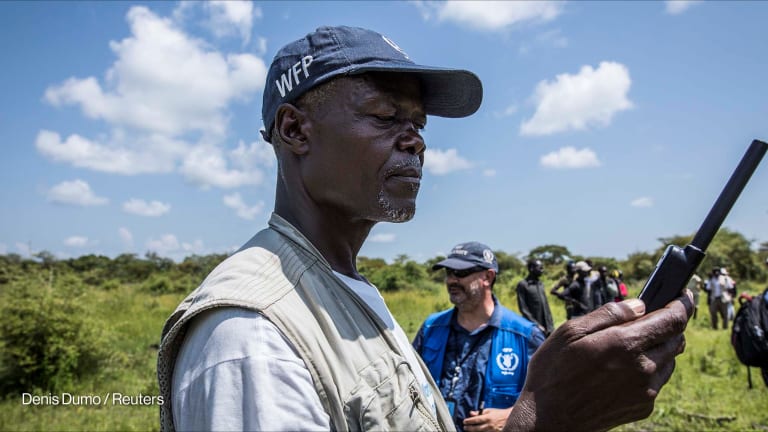CARE tests cryptocurrency vouchers for aid delivery in Kenya, Ecuador

International humanitarian organization CARE has launched pilot programs in Ecuador and Kenya to test how blockchain and cryptocurrency technology might improve aid delivery to women and women’s groups in particular.
The projects will distribute cryptocurrency-based vouchers that can be redeemed for goods or services. CARE is still determining whether to use a card-based system or mobile wallets, but either way, the expectation is that this approach will save the organization time and money.
Because blockchain — the technology that underpins cryptocurrency — offers a decentralized system of record keeping for transactions, these vouchers will be easier to track with less potential for fraud.
Watch: The ins and outs of cryptocurrency fundraising
Leaders working at the forefront of this new frontier in fundraising speak in a Devex Pro Live event on issues ranging from setting up a wallet to developing a promotional campaign around cryptocurrency fundraising.
Nonprofits are increasingly exploring cryptocurrency fundraising, as CARE is doing with its Crypto Fund for Humanitarian Aid. But there are not as many examples like these, where NGOs are testing how to maximize the benefits and minimize the risks of blockchain and cryptocurrency in their work with the people they serve.
“From a programmatic standpoint, we’ve been looking for that signal through the noise of: What is the real-world applicability here?” said Christian Pennotti, senior director for market-based approaches at CARE. “How can we explore that in a low-risk, frankly, and thoughtful way to understand what value this could bring to our work?”
In Ecuador, CARE’s crypto voucher pilot targets women at risk of gender-based violence who are in need of health services, and in Kenya, the NGO is testing the technology with women’s savings groups and loan associations.

The Ecuador pilot will reach 150 women and the Kenya pilot will reach more than 1,500 women. Both pilots use “stablecoins,” a cryptocurrency pegged to the value of the U.S. dollar, making it more stable than other widely fluctuating cryptocoins.
CARE is testing whether these crypto-based vouchers allow it to more effectively trace funds to its intended recipients. If successful, these pilots could lead CARE and other organizations to use blockchain technology more often for more transparent and efficient aid in Africa and Latin America.
CARE Ecuador has traditionally used a paper-based system that requires at least an hour and a half of work to deliver health assistance to each woman it serves.
With the vouchers, CARE’s country staff sees the opportunity not only to digitalize, but also to leverage blockchain technology in order to distribute vouchers, customize their value remotely, and track how the vouchers are being used.
Facing pressures from the COVID-19 pandemic and the Venezuelan humanitarian crisis, CARE Ecuador usually has a long waitlist. But now it can serve more women in a day, with its team freed up to work on more service delivery and less administrative work.
“For our team, it’s the opportunity to save time,” said Mónica Tobar, monitoring, evaluation, and learning officer at CARE Ecuador.
COVID-19 makes the potential benefits of blockchain — from lowering operating costs, to reaching people digitally, to increasing transparency — all the more essential, Penotti said.
How nonprofits are navigating the rise of cryptocurrency giving
As the number of crypto billionaires climbs, so too will the number of nonprofits that accept these digital assets, making it all the more important for early adopters to share how they are navigating this new frontier.
CARE has chosen Celo, a blockchain-based global payments infrastructure, as its first blockchain partner in Latin America. CARE Ecuador will use Celo’s “cUSD” stablecoin. The vouchers will be disbursed through the Umoja platform developed by Emerging Impact, which partners with NGOs to modernize financial services in low- and middle-income countries.
With these pilots, CARE joins a small but growing list of NGOs deploying blockchain in the field.
For example, Mercy Corps piloted the use of blockchain-enabled vouchers in its work with South Sudanese refugees in Uganda, with the support of Blockchain Charity Foundation, the charitable arm of the cryptocurrency exchange Binance, which is also CARE’s partner in Kenya.
While it remains to be seen whether CARE’s pilots will succeed, the NGO is working with partners to take stock of the opportunities and challenges and share its learnings with the sector.

For example, it has teamed up with the Lab for Inclusive FinTech, or LIFT, a soon-to-be-launched initiative of the Institute for Business and Social Impact at UC Berkeley, in its Kenya pilot. LIFT will carry out focus groups to better understand the opportunities for stablecoins, and the partnership will inform the design of an evaluation of blockchain technology for aid.
CARE’s blockchain experimentation is an example of the kind of testing and knowledge sharing NGOs need to do in order to move blockchain for humanitarian action from hype to reality, said Ken Weber, head of social impact at Ripple.
The payment solutions company was the first to bet on CARE’s work on blockchain, providing the NGO with a two-year grant worth $500,000 in 2020. The grant supported the development of CARE’s organizational capacity to work with new technologies including blockchain, distributed ledgers, and digital assets.
“We made a modest grant for them to do some experimentation, and for them to do it the right way,” Weber said. “Not just air dropping crypto on unbanked people and seeing what happens, but being very thoughtful and intentional and inclusive, and creating pilots that could help them — and everyone in the space — learn what the most promising applications of this technology could be.”
Update, Aug. 16, 2021: This article has been updated to clarify that CARE launched the pilot programs in Ecuador and Kenya.
Search for articles
Most Read
- 1
- 2
- 3
- 4
- 5








